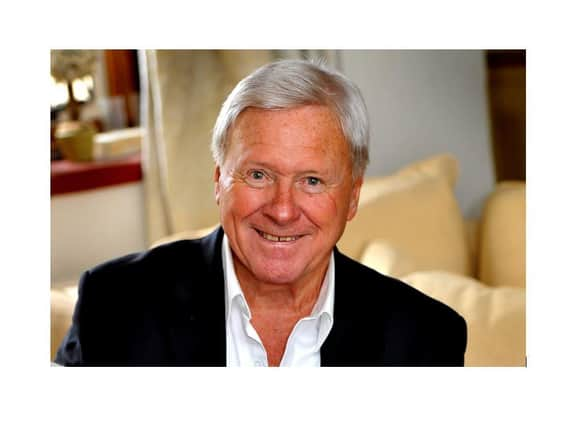Broadcasting legend David Hamilton surveys the state of local radio


David, who lives near Billingshurst, had written The Golden Days of Radio One in 2017. He imagined he was now writing, as its sequel, a book entitled Commercial Radio Days.
Instead, he realised he was actually writing Commercial Radio Daze – a volume now available as an ebook via Amazon at £4.95.
Advertisement
Hide AdAdvertisement
Hide Ad“This new book tells of my experiences of 30 years in commercial radio, a roller-coaster ride through 30 years of takeovers, mergers, closures, incompetent bosses and a fast-changing industry.”
As he says, it’s a book with particular resonance right now with the disappearance of Spirit FM…
“I left Radio 2 in 1987 because I disagreed with the music policy. All the pop was being taken out and I was given Max Bygraves and Mantovani.
“So I went to commercial radio where I discovered it was radio but not radio as I knew it.
Advertisement
Hide AdAdvertisement
Hide Ad“It was radio where money was more important than the music. It wasn’t as bad as it is now when I joined, but it became more and more the case.
“I worked out in the end that I have worked for 15 radio stations that have now disappeared which brings me to two conclusions. Either it is a very insecure business or that I must be a jinx!
“When I started working in commercial radio, every town or city had at least one commercial radio station, and later on many had two.”
And it is to their listeners that David dedicates his book – “listeners who developed a great bond with their local radio station, loved taking part in competitions, turned up at outside broadcasts and came to think of the presenters as personal friends.”
Advertisement
Hide AdAdvertisement
Hide AdDavid also dedicates it to “the presenters who did a job they loved and thought of the listeners as friends too; to those people who remember the days when radio was fun and not run by media giants for whom the money meant more than the music.”
That localness is going out the window these days: “Stations are being swallowed up by national networks and we are getting the demise of the independent local radio. Instead we are getting networked shows generated by the radio giants.
“It has made it a shrinking industry. There used to be lots of jobs for people in the local industry now, but if you look at people now leaving university having done media studies, you wonder where they are going to get their opportunities for work from.
“We are also seeing the shrinking of the local newspaper industry and we are also seeing the demise of the local television industry.
Advertisement
Hide Ad